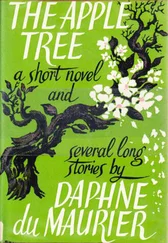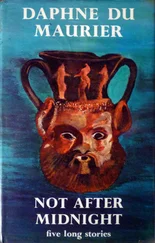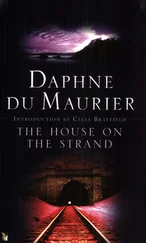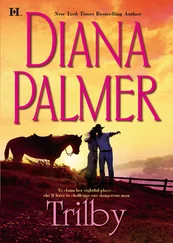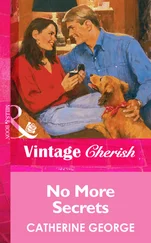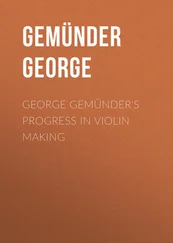George Du Maurier - Trilby
Здесь есть возможность читать онлайн «George Du Maurier - Trilby» — ознакомительный отрывок электронной книги совершенно бесплатно, а после прочтения отрывка купить полную версию. В некоторых случаях можно слушать аудио, скачать через торрент в формате fb2 и присутствует краткое содержание. ISBN: , Жанр: foreign_prose, на английском языке. Описание произведения, (предисловие) а так же отзывы посетителей доступны на портале библиотеки ЛибКат.
- Название:Trilby
- Автор:
- Жанр:
- Год:неизвестен
- ISBN:http://www.gutenberg.org/ebooks/39858
- Рейтинг книги:4 / 5. Голосов: 1
-
Избранное:Добавить в избранное
- Отзывы:
-
Ваша оценка:
- 80
- 1
- 2
- 3
- 4
- 5
Trilby: краткое содержание, описание и аннотация
Предлагаем к чтению аннотацию, описание, краткое содержание или предисловие (зависит от того, что написал сам автор книги «Trilby»). Если вы не нашли необходимую информацию о книге — напишите в комментариях, мы постараемся отыскать её.
Trilby — читать онлайн ознакомительный отрывок
Ниже представлен текст книги, разбитый по страницам. Система сохранения места последней прочитанной страницы, позволяет с удобством читать онлайн бесплатно книгу «Trilby», без необходимости каждый раз заново искать на чём Вы остановились. Поставьте закладку, и сможете в любой момент перейти на страницу, на которой закончили чтение.
Интервал:
Закладка:
The rum punch was tepid, very sweet, and not a bit too strong.
They dragged the model-throne into the middle, and a chair was put on for Little Billee, who dispensed his hospitality in a very polite and attractive manner, helping the massier first, and then the other graybeards in the order of their grayness, and so on down to the model.
Presently, just as he was about to help himself, he was asked to sing them an English song. After a little pressing he sang them a song about a gay cavalier who went to serenade his mistress (and a ladder of ropes, and a pair of masculine gloves that didn't belong to the gay cavalier, but which he found in his lady's bower) – a poor sort of song, but it was the nearest approach to a comic song he knew. There are four verses to it, and each verse is rather long. It does not sound at all funny to a French audience, and even with an English one Little Billee was not good at comic songs.
He was, however, much applauded at the end of each verse. When he had finished, he was asked if he were quite sure there wasn't any more of it, and they expressed a deep regret; and then each student, straddling on his little thick-set chair as on a horse, and clasping the back of it in both hands, galloped round Little Billee's throne quite seriously – the strangest procession he had ever seen. It made him laugh till he cried, so that he couldn't eat or drink.
Then he served more punch and cake all round; and just as he was going to begin himself, Papelard said:
"Say, you others, I find that the Englishman has something of truly distinguished in the voice, something of sympathetic, of touching – something of je ne sais quoi !"
Bouchardy: "Yes, yes – something of je ne sais quoi ! That's the very phrase – n'est-ce pas, vous autres, that is a good phrase that Papelard has just invented to describe the voice of the Englishman. He is very intelligent, Papelard."
Chorus: "Perfect, perfect; he has the genius of characterization, Papelard. Dites donc, l'Anglais! once more that beautiful song – hein? Nous vous en prions tous."
Little Billee willingly sang it again, with even greater applause, and again they galloped, but the other way round and faster, so that Little Billee became quite hysterical, and laughed till his sides ached.
Then Dubosc: "I find there is something of very capitous and exciting in English music – of very stimulating. And you, Bouchardy?"
Bouchardy: "Oh, me! It is above all the words that I admire; they have something of passionate, of romantic – 'ze-ese glâ-âves, zese glâ-âves – zey do not belong to me.' I don't know what that means, but I love that sort of – of – of — je ne sais quoi , in short! Just once more, l'Anglais; only once , the four couplets."
So he sang it a third time, all four verses, while they leisurely ate and drank and smoked and looked at each other, nodding solemn commendation of certain phrases in the song: "Très bien!" "Très bien!" "Ah! voilà qui est bien réussi!" "Épatant, ça!" "Très fin!" etc., etc. For, stimulated by success, and rising to the occasion, he did his very utmost to surpass himself in emphasis of gesture and accent and histrionic drollery – heedless of the fact that not one of his listeners had the slightest notion what his song was about.
It was a sorry performance.
And it was not till he had sung it four times that he discovered the whole thing was an elaborate impromptu farce, of which he was the butt, and that of all his royal spread not a crumb or a drop was left for himself.
It was the old fable of the fox and the crow! And to do him justice, he laughed as heartily as any one, as if he thoroughly enjoyed the joke – and when you take jokes in that way people soon leave off poking fun at you. It is almost as good as being very big, like Taffy, and having a choleric blue eye!
Such was Little Billee's first experience of Carrel's studio, where he spent many happy mornings and made many good friends.
No more popular student had ever worked there within the memory of the grayest graybeards; none more amiable, more genial, more cheerful, self-respecting, considerate, and polite, and certainly none with greater gifts for art.
Carrel would devote at least fifteen minutes to him, and invited him often to his own private studio. And often, on the fourth and fifth day of the week, a group of admiring students would be gathered by his easel watching him as he worked.
"C'est un rude lapin, l'Anglais! au moins il sait son orthographe en peinture, ce coco-là!"
Such was the verdict on Little Billee at Carrel's studio; and I can conceive no loftier praise.
Young as she was (seventeen or eighteen, or thereabouts), and also tender (like Little Billee), Trilby had singularly clear and quick perceptions in all matters that concerned her tastes, fancies, or affections, and thoroughly knew her own mind, and never lost much time in making it up.
On the occasion of her first visit to the studio in the Place St. Anatole des Arts, it took her just five minutes to decide that it was quite the nicest, homeliest, genialest, jolliest studio in the whole quartier latin, or out of it, and its three inhabitants, individually and collectively, were more to her taste than any one else she had ever met.
In the first place, they were English, and she loved to hear her mother-tongue and speak it. It awoke all manner of tender recollections, sweet reminiscences of her childhood, her parents, her old home – such a home as it was – or, rather, such homes; for there had been many flittings from one poor nest to another. The O'Ferralls had been as birds on the bough.
She had loved her parents very dearly; and, indeed, with all their faults, they had many endearing qualities – the qualities that so often go with those particular faults – charm, geniality, kindness, warmth of heart, the constant wish to please, the generosity that comes before justice, and lends its last sixpence and forgets to pay its debts!
She knew other English and American artists, and had sat to them frequently for the head and hands; but none of these, for general agreeableness of aspect or manner, could compare in her mind with the stalwart and magnificent Taffy, the jolly fat Laird of Cockpen, the refined, sympathetic, and elegant Little Billee; and she resolved that she would see as much of them as she could, that she would make herself at home in that particular studio, and necessary to its "locataires"; and, without being the least bit vain or self-conscious, she had no doubts whatever of her power to please – to make herself both useful and ornamental if it suited her purpose to do so.
Her first step in this direction was to borrow Père Martin's basket and lantern and pick (he had more than one set of these trade properties) for the use of Taffy, whom she feared she might have offended by the freedom of her comments on his picture.
Then, as often as she felt it to be discreet, she sounded her war-cry at the studio door and went in and made kind inquiries, and, sitting cross-legged on the model-throne, ate her bread and cheese and smoked her cigarette and "passed the time of day," as she chose to call it; telling them all such news of the quartier as had come within her own immediate ken. She was always full of little stories of other studios, which, to do her justice, were always good-natured, and probably true – quite so, as far as she was concerned; she was the most literal person alive; and she told all these "ragots, cancans, et potins d'atelier" in a quaint and amusing manner. The slightest look of gravity or boredom on one of those three faces, and she made herself scarce at once.
Читать дальшеИнтервал:
Закладка:
Похожие книги на «Trilby»
Представляем Вашему вниманию похожие книги на «Trilby» списком для выбора. Мы отобрали схожую по названию и смыслу литературу в надежде предоставить читателям больше вариантов отыскать новые, интересные, ещё непрочитанные произведения.
Обсуждение, отзывы о книге «Trilby» и просто собственные мнения читателей. Оставьте ваши комментарии, напишите, что Вы думаете о произведении, его смысле или главных героях. Укажите что конкретно понравилось, а что нет, и почему Вы так считаете.

